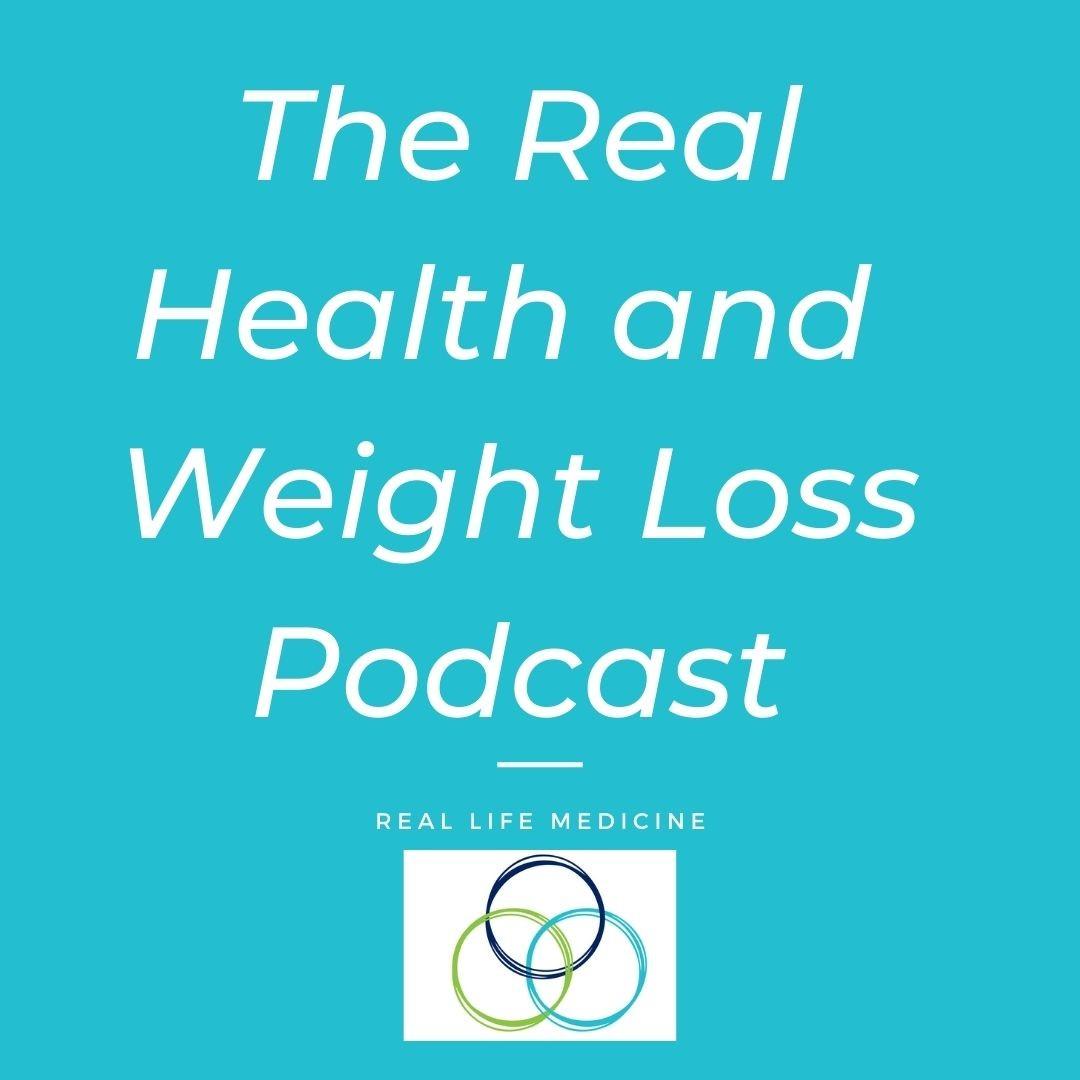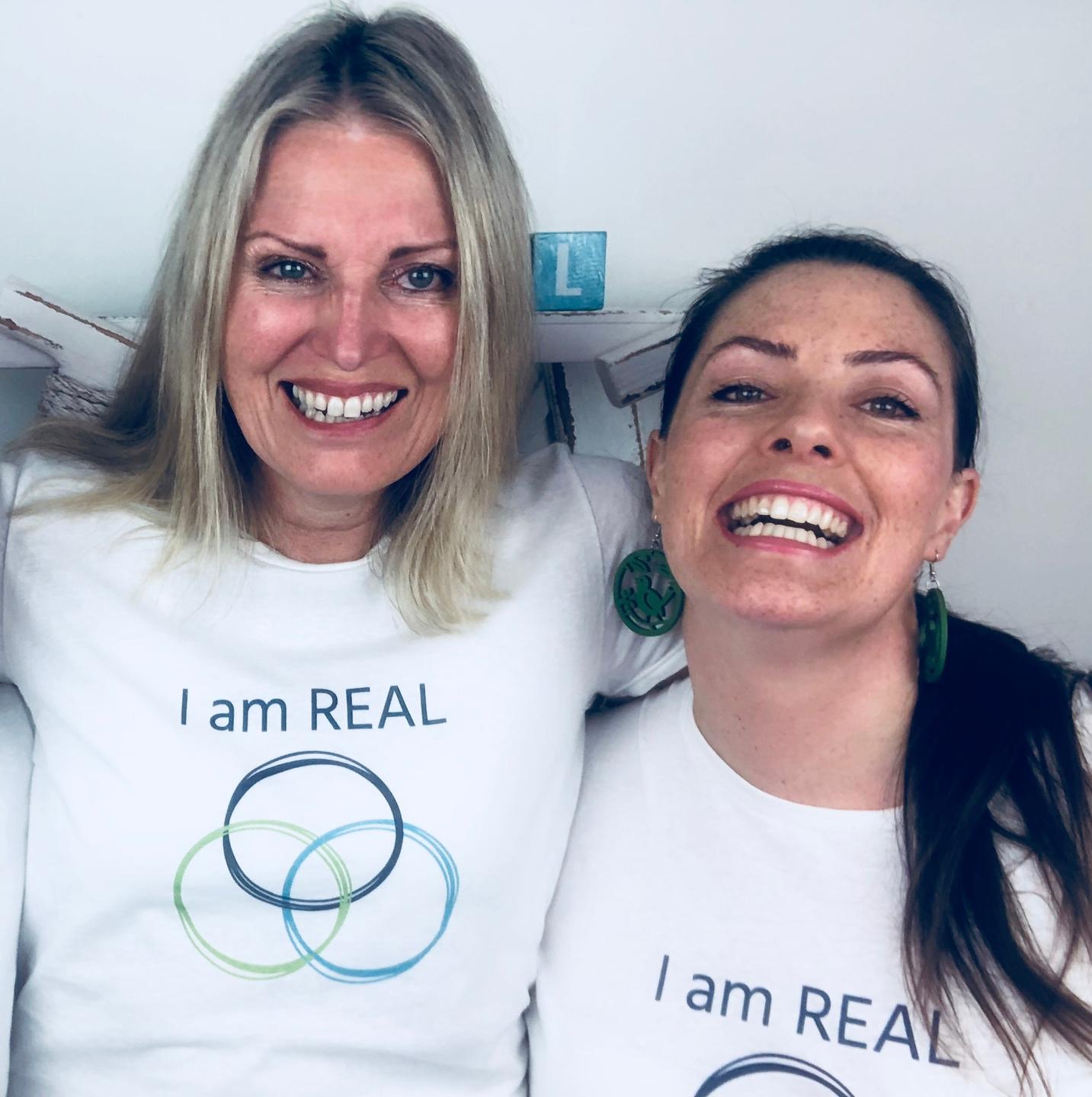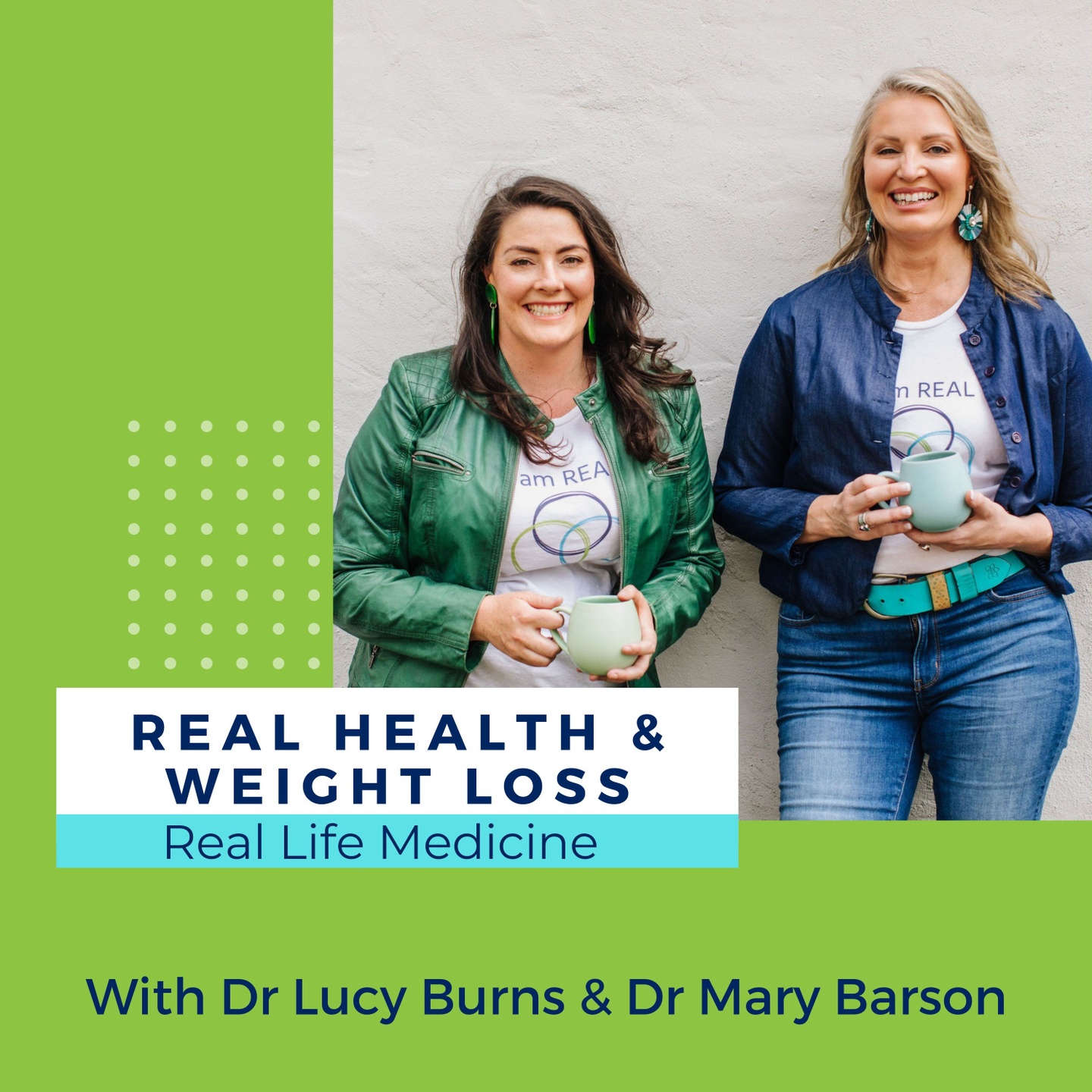


Episode 2:
Show Notes
Woodsheds and Weight Loss
- Psychology of weight loss - managing the mind-it's not just will power!
- Physiology of weight loss - understanding the hormones that are involved with the storage of body fat.
- Woodshed analogy - the role of insulin in fat burning and weight gain. The higher your insulin levels the more difficult it is to burn excess body fat.
- Low-fat diets - not sustainable and they do not work for long term, healthy weight loss. The underlying causes are not addressed.
- Two main ways to lower your insulin and unlock your woodshed - low carb real food diet & time-restricted eating/intermittent fasting.
- Coming up on future episodes - discussing cholesterol on a low carb real food diet.
- To learn more about how you can transform your health with Dr Lucy and Dr Mary, head to our website www.rlmedicine.com.

Episode 2:
Transcript
Dr Mary Barson: Hello, my lovely listeners. I'm Dr. Mary Barson.
Dr Lucy Burns: And I'm Dr. Lucy Burns. Welcome to this episode of Real Health and Weight Loss.
Dr Mary Barson: Today, we are diving into the physiology and psychology of weight loss. But really, when we talk about weight loss, what we are talking about is fat loss, about burning your own fat stores so that you can get slimmer and far more importantly, healthier.
Dr Lucy Burns: Mares, you mentioned physiology. So I think when we talk about physiology and psychology, most people have a handle on what psychology means, but what does physiology mean?
Dr Mary Barson: So physiology really means all of the biochemical and hormonal processes that go on inside the body. And understanding the physiology of fat loss or the physiology of being overweight, is really, really important.
Dr Lucy Burns: And I guess, given you're a biochemist, as well as a medical doctor, this would be one of the areas which you know a lot about.
Dr Mary Barson: Indeed, indeed. I love physiology, it's one of my greatest loves in life! So let's talk about the physiology of fat loss. Weight gain, fat gain, we actually technically call it adipose tissue is the name for the sort of the fat tissue that accumulates around the body. What causes people to gain weight, to gain fat, and to get a lot of that extra adipose tissue that we don't particularly want or like? Fat gain is a hormonal process. And the treatment, the way to be able to start burning your own fat stores and to lose that fat is also hormonal. Traditional weight loss advice has almost always focused on calories, that you must burn more calories than you consume, and has turned the whole issue of weight loss and weight gain into a simple mathematical equation. But this is such a gross simplification to the point where it is in fact wrong. Fat Loss is not maths, it is chemistry and if you want to lose that sustainably, healthily, and indeed even without hunger, then you must address the hormonal causes of fat gain. And that is what we're discussing today. That hormonal cause of fat gain is insulin, mostly.
Dr Lucy Burns: So Mary, people when they think of hormones, they think of you know oestrogen, progesterone, you know, menopause, that sort of thing?
Dr Mary Barson: Yeah, absolutely. That's, that would be the hormones that get the most press and airtime. And they are, they are very important for health and wellness. And they do actually play a role in fat loss and fat gain. However, the main hormonal players that we talk about when we're talking about fat loss are the metabolic hormones and the master metabolic hormone is insulin. All right, so Lucy, you've got a wonderful analogy for describing insulin and its role in fat loss, and I think that people really need to hear it now.
Dr Lucy Burns: Okay, so what I often talk to my patients about is that insulin is our major fat storing hormone. Insulin is super important. Without insulin, we die. So even though in excess, it's dangerous, without it, it's also dangerous. It's like the two extremes.
So basically, insulin's main job is to keep our blood glucose between four and six. Our body thrives when blood glucose is between four and six, any higher and it's toxic to many of our tissues. So the body will do that at all costs and the pancreas where insulin is made, produces as much insulin as required, in order to achieve this perfect four to six range of blood glucose. The pancreas, such a kind organ, will work its guts out in order to keep us safe from toxic blood glucose. Now, the wonderful thing about the pancreas, it produces buckets of insulin and keeps us safe. The other thing though, that insulin does is it stops fat breakdown. So when you have stored fat and high insulin, you can't access your fat stores. So we're finding that in our current environment, the way our society currently lives, that there is a large proportion of people with high circulating insulin, and that stops them burning their own fat.
So, for an analogy, and you're gonna hear these a lot, I love analogies. I was born to be an analogist, if only there was a career in it. If you imagine your body is like a fireplace, it needs fuel. So, in traditional fireplaces we have kindling, and we have logs. So the kindling are carbs, OK? Carbs for fuel. The logs are fat. Fat is just fuel. So when we’re putting carbs on or kindling, our fireplace burns hot, it gives you energy but it dies down quite quickly. And so we start to get a bit hungry. Now in people who have normal insulin levels that will have logs next to their fireplace, their body or just whack a log on, you won't even know, they just get going. For people with high insulin, there are no logs next to their fireplace. They’re out in a woodshed. So they toddle out to the woodshed and they can see all this beautiful fuel ready for burning. Logs there, all stacked up, and they try to open the shed. But, on the shed is a padlock and that padlock is insulin.
Now for some people with really high levels of insulin, they'll have four or five padlocks. So it doesn't matter what they do, they cannot open that shed. So they come back to their fireplace, which is now dwindling down to just a mere couple of coals. They're tired, they're hungry, their body is running out of fuel. They might be getting hangry as the term now is and they have to eat. Telling somebody without any fuel in their fireplace not to eat is crazy. So they then go, “Right! Well, I've gotta eat. What do we eat?” By this stage they’re often really a bit shaky, sometimes absolutely ravenous. So you get something quick, a sandwich, whatever you can reach, whatever is quick and easy. And that fuels your fireplace. So the key is not to stop eating, the key is to get the insulin down.
Dr Mary Barson: I love this analogy. Our bodies can run on two types of fuel sources, we can run on sugar, and we can run on fat. And when we want to lose fat, we want to lose weight. We want our bodies to be able to burn the fat. But when insulin is elevated, we cannot burn fat. The woodshed in Lucy's analogy is locked. So, the key to sustainable weight loss - to healthy sustainable weight loss - is to lower insulin and open the woodshed so you can start burning the fat, which is the metaphorical big logs of wood.
Dr Lucy Burns: Traditionally, though, we've all been told to go on a low fat diet. In fact, that's still the advice of many health professionals. What are your thoughts on that?
Dr Mary Barson: Look, it doesn't work, not long term and not sustainably. Low fat diets have been the traditional advice for a long time now, but they don't work, not sustainably, for long term and healthy weight loss because they do not address the underlying cause. A low fat diet will not lower your insulin. A low fat diet will not unlock that woodshed so that you can start burning your own fat. Really, there are only two main ways to lower your insulin and unlock your woodshed. The two main ways to lower your insulin so that you can unlock that woodshed to your metaphorical fat stores is a low carb diet and we absolutely recommend a low carb real food diet that we will dive into in the next episode and also time-restricted eating or intermittent fasting. However, it's a bit tricky to do time-restricted feeding and intermittent fasting until you have got your insulin low and under control. So we always recommend starting with low carb, real food, and when you're really, really going well into that, after many weeks, then to introduce some intermittent fasting. Those two healthy habits are incredibly powerful for lowering insulin and losing that fat for good.
Dr Lucy Burns: Surely I can just take a pill?
Dr Mary Barson: I do get asked that question a lot. Is there a medication that I could take to lower my insulin? Hmm, it'd be an absolute blockbuster of a drug if it existed. And the short answer is no, no, there is no medication that lowers insulin. There are some medications like Metformin that kind of tinker around the edges and some of the peripheral effects. There are medications that can slightly increase the effects of insulin, but there is no medication that lowers your insulin, there is no medication that can do for your health, what low carb real food and intermittent fasting will do.
Dr Lucy Burns: Do you know the thing I think too? Basically our pancreas is looking after us. If we just lowered the insulin, then the glucose would go up and we'd be diabetic earlier. So it's really interesting, isn't it that we actually don't want to lower insulin without lowering the glucose load on our body, which I think is basically what the low carbohydrate lifestyle offers.
Dr Mary Barson: Absolutely! Low carbohydrate lifestyle gets to the absolute root cause of the entire problem. The entire reason why our bodies got out of whack and got overweight in the first place, is because insulin has got high.
Dr Lucy Burns: I am super looking forward to our next episode, which is really going to be taking a deeper dive into low carb real food because I already know a lot of people are worried about a low carb lifestyle or a ketogenic diet, and they're worried they're gonna clog their arteries with fat. And we will be able to dispel some of these myths and I guess give you the peace of mind to embark on a low carbohydrate lifestyle with confidence.
So my lovely listeners that ends this episode of real health and weight loss. I'm Dr. Lucy Burns,
Dr Mary Barson: and I'm Dr. Mary Barson. We’re from Real Life Medicine. To contact us, please visit www.rlmedicine.com
Dr Lucy Burns: And until next time, thanks for listening.







